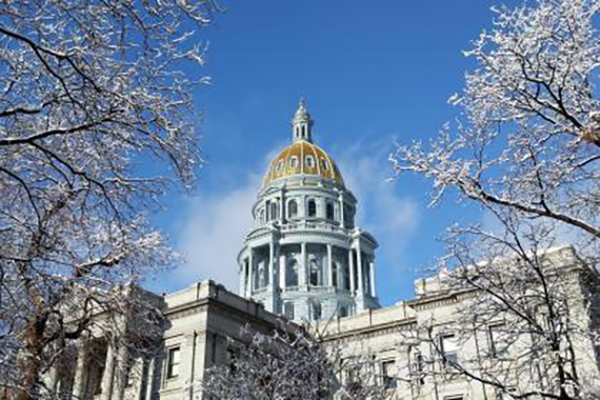In this new world of virtual reality for organization meetings, regulatory hearings, and stakeholder meetings it is easy to become glued to the screen. CDPHE announced earlier this year that its regulatory hearings and commission meetings would be held remotely to prevent virus spread and recently we learned that DNR has instructed its various divisions to work remotely until year end.
Stakeholder meetings are challenging but doable as people learn the fine art of screen sharing to make documents available for participants. And COVID-19 is creating the new phenomenon of “virtual” fundraisers for new legislative candidates, although current lawmakers have been holding online town hall meetings for constituents for several months now.
Speaking of legislative candidates, the Secretary of State’s office just released the official webpage listing the names of candidates for federal and state offices who have filed candidacy paperwork with the Colorado Secretary of State’s Office. This will prove helpful to CMA and its members as we attempt to connect with these new (potential) policymakers before January 13 when the 2021 General Assembly convenes. With restrictions in place on the number of people that can meet face-to-face, we will be looking at all available tools to communicate about mining issues.
Will the proposed TENORM regulations impact waste rock from mining? That is a question CMA has been asking since the first draft regulation was posted on the Radiation Control website. During the authorizing legislation and immediately following its passage, the head of the Radiation Control Division stated that it was not her intent to regulate waste rock. However, there seems to be ambiguity in the draft regulation itself which only exempts household wastes and wastes measuring less than 5 pCi/g. In recent stakeholder Zoom meetings, the Division is responding to most questions by referring to various guidance documents which will be issued once the regulation has been adopted by the Board of Health. Further complicating the situation is the lack of clarity concerning rulemaking procedures for that body.
The State of Colorado has obtained a preliminary injunction against EPA preventing application of the June 22 Waters of the U.S. regulation. California and other states which challenged the new rule were unsuccessful in the U.S. District Court for the Northern District of California; however, in the U.S. District Court for Colorado the Attorney General asserted that EPA’s new definition failed to protect waters of the state which include much broader set of waters. At issue is the rule’s elimination of ephemeral streams and wetlands not connected to surface water bodies. The State now argues that this gap in protection requires it to establish a new permit program for dredge and fill activities previously regulated by the Army Corps of Engineers. Legislation to authorize the new permit program was proposed at the end of the 2020 General Assembly and is expected to resurface in January. CMA, as well as several other organizations, are studying this issue in preparation for the 2021 legislative session.
Greenhouse gas reduction is uppermost in the minds of the environmental community and the Air Quality Control Commission. The Commission’s GHG subcommittee met in July and will meet again August 18 to recommend strategies for achieving the mandated reductions from 2019 legislation. A package of bills, including HB 19-1261 and SB 19-096 required the AQCC to propose rules by July 1, 2020 to reduce GHG emissions in Colorado by 50% in 2030. This unrealistic goal ran smack into the COVID-19 public health emergency, a drastic revenue shortfall, and crisis among the Denver homeless population. Nonetheless, climate change warriors have now sued the Polis Administration for failure to meet the deadline for proposed rules. And, if that were not enough, the GHG mitigation strategies under discussion are costly and unrealistic, such as converting over the road trucks to electric, and curtailing the use of natural gas for heating and appliances. Next month we will bring more news from Never-Never Land!







